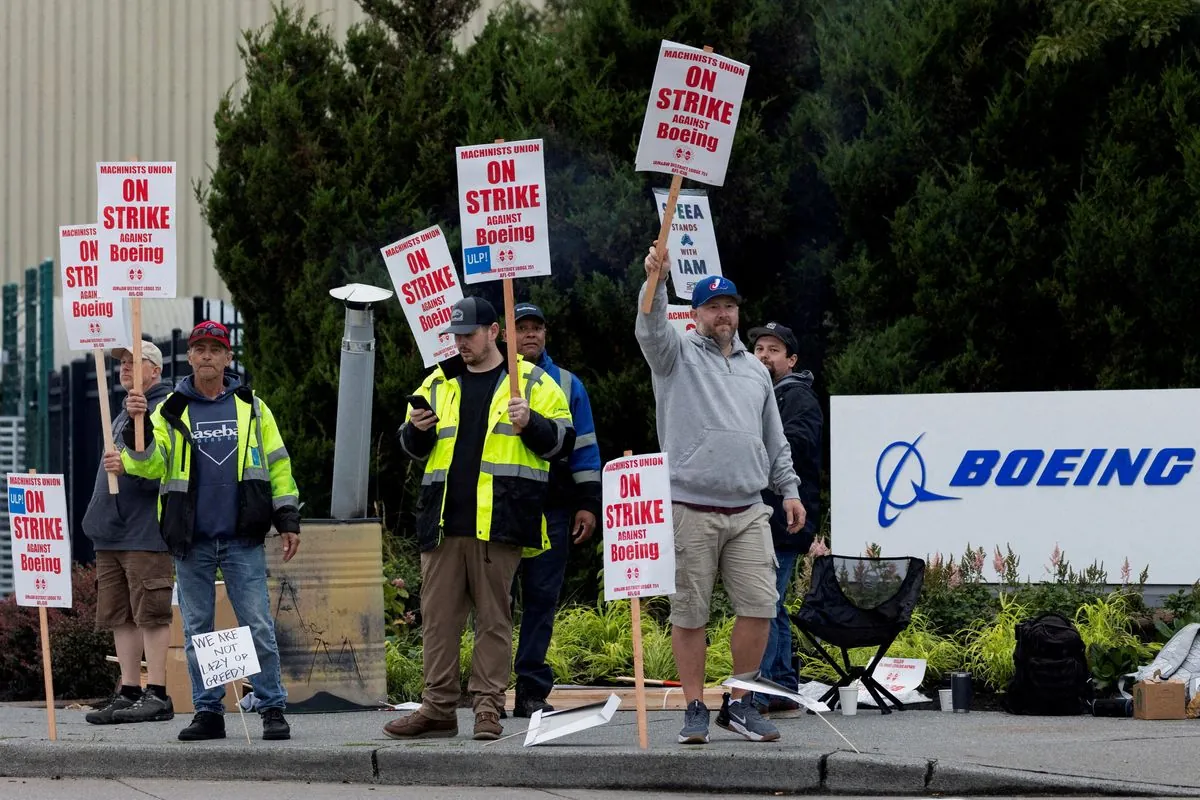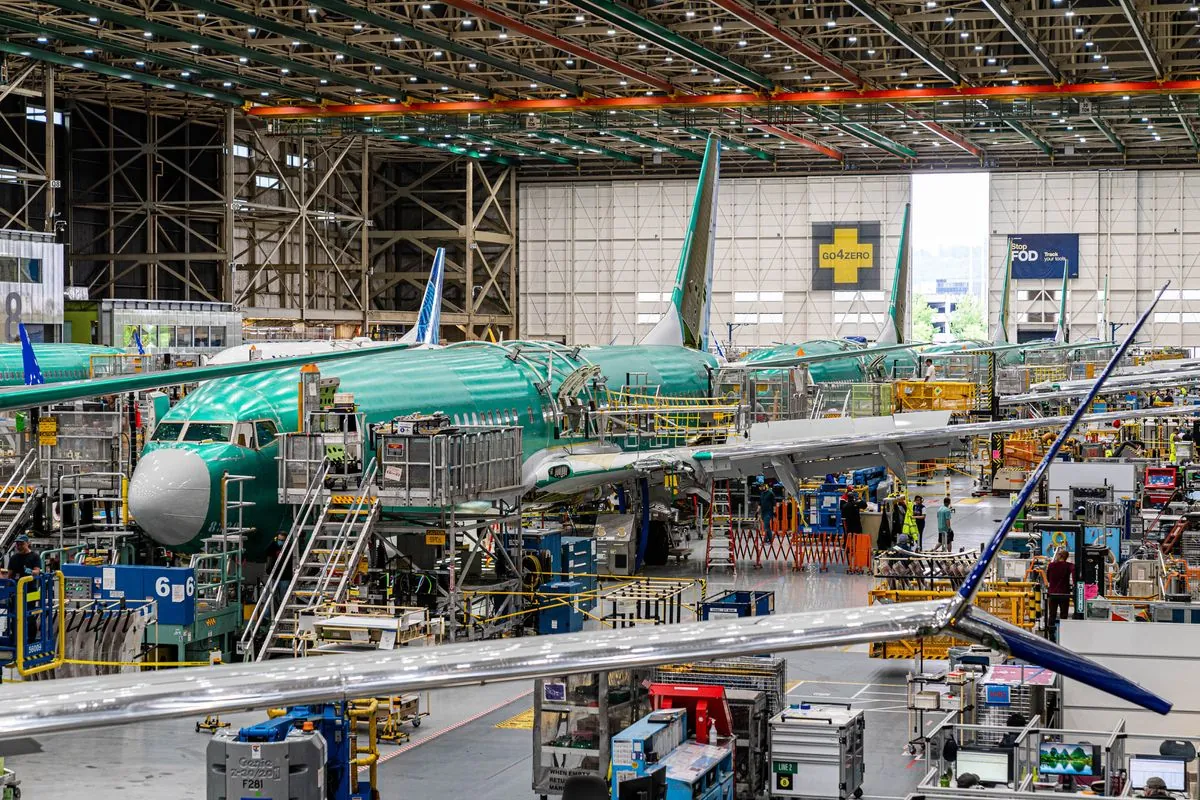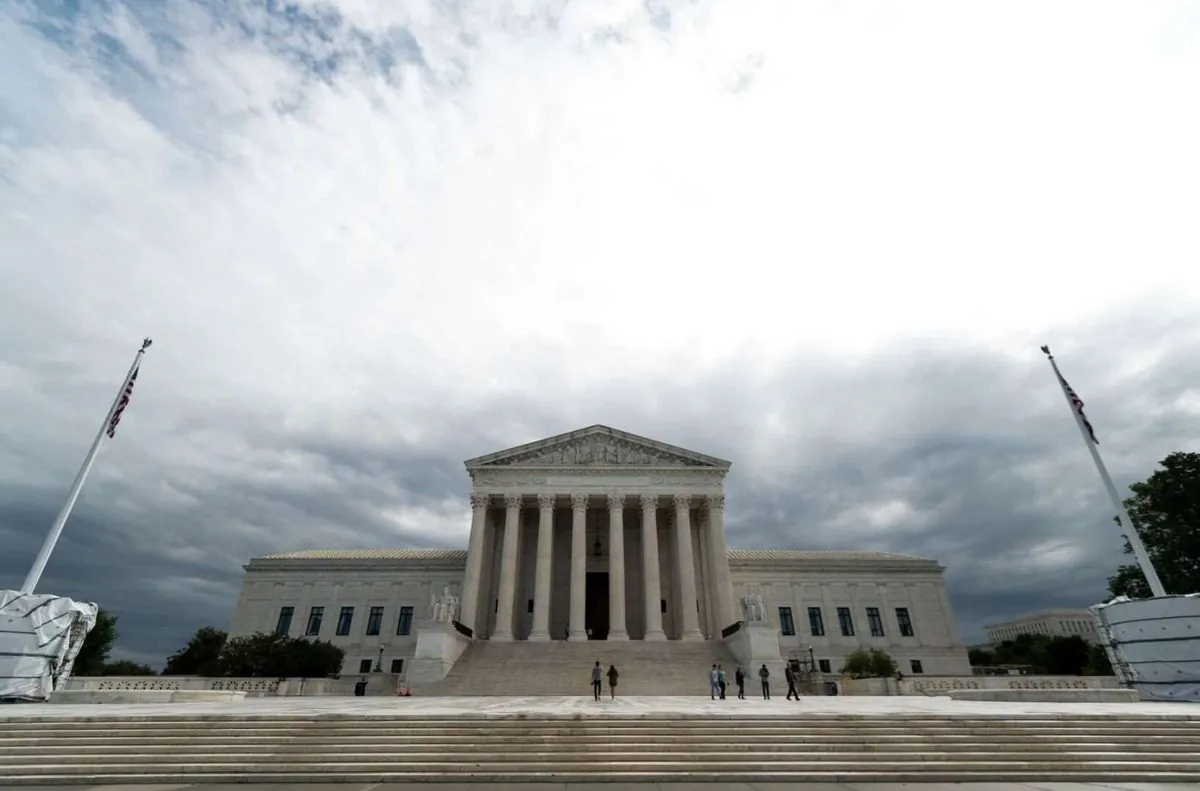Boeing's Revised Offer to Striking Workers Faces Skepticism
Boeing proposes 30% pay raise over four years to striking factory workers, but union and employees express dissatisfaction. The ongoing strike halts production of key aircraft models.

In a recent development, Boeing has presented a revised contract offer to its striking factory workers, proposing a 30% pay raise over four years. This offer, an increase from the previous 25% proposal, comes as the aerospace giant grapples with production halts and mounting financial pressures.
The International Association of Machinists and Aerospace Workers, representing 33,000 employees, had initially demanded a 40% increase over three years. The union's response to the new offer has been lukewarm, with many workers expressing dissatisfaction on the picket lines.
Daniel Dias, a test technician at Boeing, voiced his concerns: "A 5% increase? It's not enough. My mortgage is $4,000. I went to Safeway yesterday to get breakfast, and it cost me $62 in groceries."
The strike, now in its 12th day, has significantly impacted Boeing's operations. Production of the company's best-selling airline planes, including the 737, 767, and 777 models, has come to a standstill. This setback comes at a crucial time for Boeing, which has been striving to recover from a series of challenges in recent years.

Boeing's financial struggles have been substantial, with losses exceeding $25 billion since the beginning of 2019. The company has fallen behind its main competitor, Airbus, in both orders and deliveries to airline customers. These difficulties stem from various factors, including the aftermath of two fatal crashes involving the 737 MAX and recent quality control issues.
The aerospace industry has been closely watching Boeing's efforts to address these challenges. Mike Whitaker, the Federal Aviation Administration (FAA) Administrator, commented on the company's priorities during a U.S. House subcommittee hearing. He emphasized the importance of safety in Boeing's operations, stating, "Even if profits were your No. 1 goal, safety really needs to be your No. 1 goal because it's hard to be profitable if you're not safe."
Boeing's history as a cornerstone of the American aerospace industry dates back to its founding in 1916 by William Boeing in Seattle, Washington. Over the decades, the company has played a pivotal role in both commercial aviation and space exploration. Its contributions include involvement in the Apollo missions and the development of the International Space Station.
The current labor dispute highlights the ongoing challenges faced by the world's largest aerospace company. As Boeing works to resolve the strike and address its broader issues, the industry will be watching closely to see how these developments impact the future of commercial aviation and aerospace manufacturing.
"We build a product that people's lives depend on. There will be plenty of bonus money to go around for upper-level and mid-level and first-level managers and all that, but if we don't build it, there's no product. And we work hard."
As negotiations continue, the outcome of this labor dispute could have far-reaching implications for Boeing's recovery efforts and its position in the global aerospace market. The company's ability to address worker concerns while maintaining its competitive edge will be crucial in shaping its future trajectory.


































